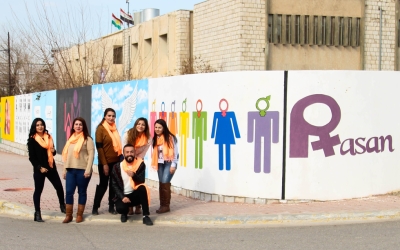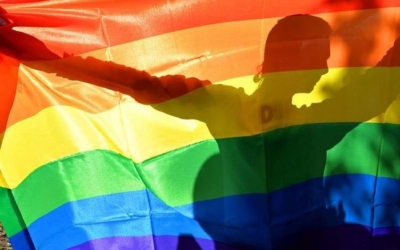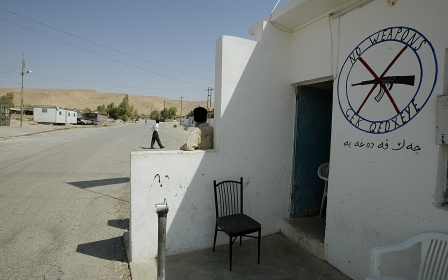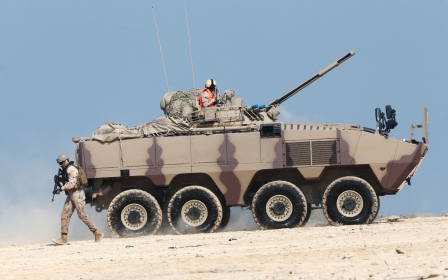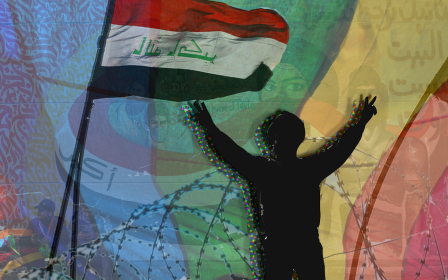Iraq: Murder of trans Kurdish woman sparks anger among activists
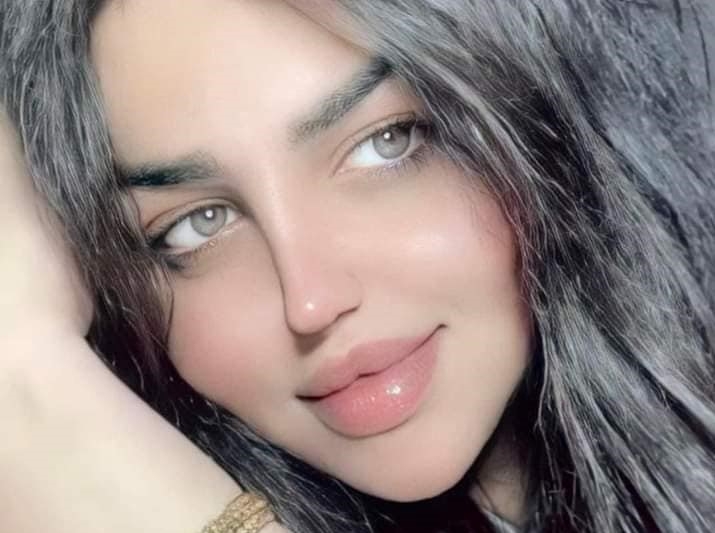
The murder of a 23-year-old transgender woman in the Kurdish city of Duhok on Monday has reaffirmed fears among the LGBTQ+ community in Iraq of the dangers faced by those who are non-heterosexual, or gender non-binary anywhere in the country.
Doski Azad, a well-known make-up artist, was reportedly shot dead by her brother, who has since fled the country, in what authorities have described as a so-called "honour killing".
'We all have a lot to say, we are frustrated and angry, but not shocked'
- Zhiar Ali, LGBTQ+ activist
The Kurdistan Regional Government's security services said they had opened an investigation into the killing, which has been condemned by both local activists and diplomats.
Hemin Suleiman, a spokesman for the Duhok police, told Voice of America that an arrest warrant had been issued for the killer, who is believed to live in Germany, while the US consul general in Erbil on Thursday called on the Kurdish authorities to "prosecute the perpetrator to the fullest extent of the law".
Social media users began spreading #JusticeForDoskiAzad, calling for her killer to be brought to justice - but Iraqi LGBTQ+ activists are afraid there is little hope of that.
New MEE newsletter: Jerusalem Dispatch
Sign up to get the latest insights and analysis on Israel-Palestine, alongside Turkey Unpacked and other MEE newsletters
"We all have a lot to say, we are frustrated and angry, but not shocked," Zhiar Ali, an LGBTQ+ activist originally from the city of Sulaymaniyah, but now based in the Netherlands.
"As long as the KRG turns a blind eye to the LGBT+ cause and the issues the community face in the region, things like this will continue happening," added Ali.
While living openly as LGBTQ+ in conservative Iraq has long been difficult, the autonomous Kurdish region in the north has attempted to present itself as a relatively liberal and secure haven compared to the south. But the reality is different, say activists.
"Last year, another trans woman called Misho was also murdered by her brother, and it’s still unclear if the perpetrator was ever brought to justice," said Ali.
"Not only do we have to accept that we could be murdered at any given moment, but we have to also expect that our murderers will most likely roam around free!"
A liberal facade?
Politicians in Iraqi Kurdistan have attempted to show that the region does support tolerance of diversity of sexual orientation.
While discussing sexuality and the rights of sexual minorities is taboo among Iraqi politicians in the south, a number of KRG politicians have been willing to express a degree of support.
Qubad Talabani, the KRG's deputy prime minister, has previously tweeted that he believed "all citizens, regardless of race, religion, gender (and or gender preference), ethnic identity and sexual preference deserve equal rights, all over the world, and especially in Kurdistan."
But for some LGBTQ+ Iraqis, this veneer of tolerance means little when compared to the reality of their lives in what is still a conservative and patriarchal society.
“Of course, I am really shocked that the Kurdish government in social media always tries always to present Kurdistan as a safe place...specially Erbil, [and they attempt] to show that the culture is open and accepting," said Bashar Taha, an LGBTQ+ rights campaigner who now lives in Germany. "But sadly the reality is totally different and, to this day, people get killed there.”
In a statement on Thursday, the KRG said that "phenomena that are contrary to social laws and traditions" had to be dealt with within the legal system and claimed that "Kurdistan remains a safe haven for the practice of individual freedoms".
In a tweet, Ali said the comments had clearly been inserted to "satisfy the conservatives who want to murder anyone not fitting the heteronormative narrative".
LGBTQ crackdown
In April last year, Sulaymaniyah, sometimes seen as the most liberal city in Iraq, witnessed a police operation that saw the arrest of 15 LGBTQ+ men, allegedly for prostitution.
Although the Directorate of Security in Sulaymaniyah said the arrests were not focused on any one group, operation supervisor Pshtiwan Bahadin told local media that the arrests were aimed at "homosexuals" and said they had taken place with the "cooperation of all the security forces".
Human Rights Watch said they were "deeply disturbed" by the incident which left the LGBTQ+ community "terrified" and afraid of further persecution.
Incidents like this, Ali stressed, are indicative of why violence against LGBTQ+ people goes unresolved.
"Sometimes, LGBT+ people are detained when they go to the police to report a crime," he explained.
“Other times, they are too scared to even speak up. The government has failed to provide basic services and necessities to the community, and not enough effort is put into investigation of hate crime cases like Doski's.”
This article is available in French on Middle East Eye French edition.
Middle East Eye delivers independent and unrivalled coverage and analysis of the Middle East, North Africa and beyond. To learn more about republishing this content and the associated fees, please fill out this form. More about MEE can be found here.


